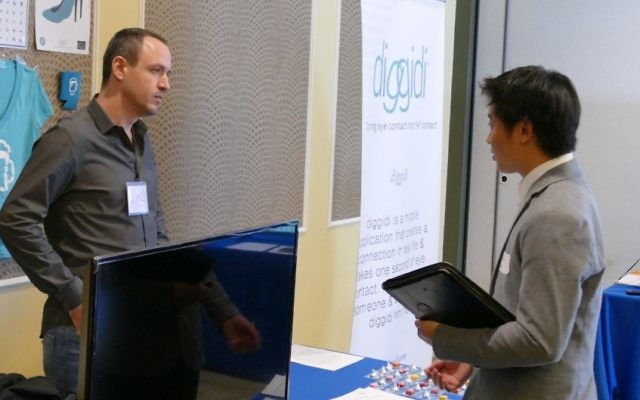Our View: Asian Appeal
One of the great worries these days is the spread of anti-Israel sentiment and the boycott, divestment and sanctions movement on college campuses.
We have written about and will continue to report on examples of the dangerous battle for hearts and minds at universities around the country, including the University of Georgia this semester. From BDS resolutions to protests of pro-Israel speakers to the nasty propaganda of Israel Apartheid Week, anti-Israel activists are targeting a population (college students) that is vulnerable because of a combination of ignorance, innocence and social justice impetus.
Entrepreneur Michael Coles, in his fourth year as president of Hillels of Georgia, emphasized the reality and importance of that campus struggle during his appearance before the AJT-sponsored Jewish Breakfast Club on Thursday morning, March 10. Coles said he is committed to working with Hillel as long as necessary to ensure that the campus organization has the resources it needs to help college students be proud of their Jewish identities and of Israel.
(You can contribute to that cause by attending Hillels of Georgia’s “Night With the Stars” fundraiser Tuesday night, March 29, at the Buckhead Theatre. Visit hillelsofgeorgia.org/nightwiththestars for details and tickets.)
A national event that recently came through Georgia, the Start Up Nation Technology Fair, provides reassurance that the pro-BDS, anti-Israel forces are losing and will continue to do so.
It’s not that the turnout for the traveling fair was overwhelming at Georgia Tech on Feb. 29 and Emory on March 1, although the showcase of Israeli innovation and entrepreneurship organized by Israel Ideas and Hasbara Fellowships drew good attendance.
It’s not that the gathering of such startups as Zeekit, which lets you virtually try on new clothes, and Mobileye, whose technology helps cars avoid collisions, was a reminder of the contributions Israeli companies make to modern life worldwide, although that message was unavoidable.
It’s not that the fair connects college students to internships with Israeli companies and thus strengthens connections at a personal level, although the conversations alone between students and startup executives created networking bonds that could pay dividends for decades.
The most important thing about the Start Up Nation Technology Fair, at least the Emory stop, was which students showed up and made those connections and learned the global value of Israel.
Yes, Jewish students were there, but while it’s always important to strengthen young Jews’ connections to Israel, they didn’t appear to be the largest group in attendance.
That honor goes to Asian students.
They flocked to the fair, drawn by Israeli technology and know-how and the possibility to work with and learn from Startup Nation stars.
Barry Swartz, the vice president of Conexx: America Israel Business Connector, who spoke at the Emory fair, said the Asian turnout was not surprising; he has seen it before, as when an Israeli Nobel laureate came to Atlanta several years ago and spoke to an audience filled with people whose roots are between India and Japan and whose futures are in high tech.
Such crowds help explain Israel’s increasing efforts to build ties in the East instead of in Europe, but they also demonstrate why BDS will always fail on campus: Too many smart non-Jews are too busy building and benefiting from a better world to get mired in politics.





comments